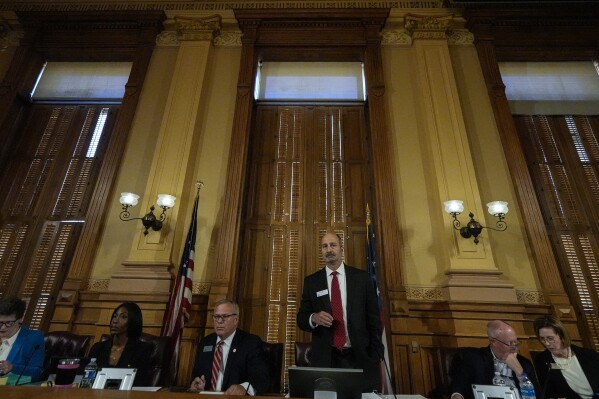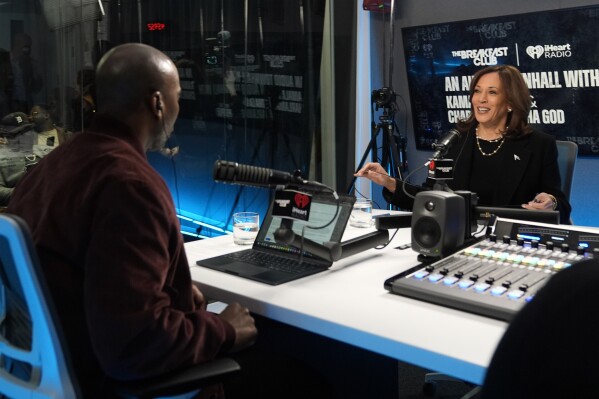Your support helps us to tell the story
Support NowThis election is still a dead heat, according to most polls. In a fight with such wafer-thin margins, we need reporters on the ground talking to the people Trump and Harris are courting. Your support allows us to keep sending journalists to the story.
The Independent is trusted by 27 million Americans from across the entire political spectrum every month. Unlike many other quality news outlets, we choose not to lock you out of our reporting and analysis with paywalls. But quality journalism must still be paid for.
Help us keep bring these critical stories to light. Your support makes all the difference.
The leaders of the European Union and six Gulf nations met for an inaugural summit on Wednesday against a backdrop of turmoil in the Middle East and struggles to find a unified position on the war in Ukraine and relations with Russia.
The summit was expected to last just a few hours and encompass everything from visas and trade to the situation in the Middle East, and was unlikely to yield more than general commitments to improve cooperation.
Belgian Prime Minister Alexander De Croo said the summit was “long overdue” and added that “the economic ties between the European Union and the Gulf countries need to be strengthened."
“They are there, but they have the potential to be developed much, much further,” he said.
Officials said the EU would also raise human rights issues with their visitors, which includes Saudi Crown Prince Mohammed bin Salman. The United States , U.N. and others have alleged that aides of Prince Mohammed and other Saudi officials killed U.S.-based journalist Jamal Khashoggi, whose columns for The Washington Post were critical of the crown prince.
"Our outrage and revulsion at this horrific violation of human rights cannot be set aside for the sake of quick deals with dictators. EU leaders must confront brutal authoritarianism wherever it exists," EU Greens legislator Daniel Freund said.
The 27-nation EU has long had relations with the six-nation Gulf Cooperation Council, which include Qatar, Bahrain, United Arab Emirates, Saudi Arabia, Oman and Kuwait.
The nations of the European Union already find it challenging to find full alignment on Israel's wars against Hamas and Hezbollah, and it will be difficult to find a strong common statement with GCC leaders, officials familiar with the meeting said.
EU members are also in disagreement regarding relations with Russia and Ukraine, with nations like Hungary and Slovakia holding vastly different views on Moscow's actions than much of the other EU states. At the same time, several GCC nations have much better contact with Moscow compared to EU members.
Disclaimer: The copyright of this article belongs to the original author. Reposting this article is solely for the purpose of information dissemination and does not constitute any investment advice. If there is any infringement, please contact us immediately. We will make corrections or deletions as necessary. Thank you.



